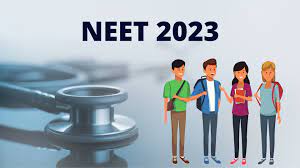Education is a complex dance between the student, the teacher, and the knowledge itself. Educational psychology acts as the choreographer, providing the framework for understanding how students learn, what motivates them, and how their cognitive abilities develop. This understanding translates into practical applications that create a vibrant and effective learning environment.
Learning Theories: Building the Foundation
-
Behaviorism: Pioneered by B.F. Skinner, behaviorism views learning as a process of acquiring new behaviors through reinforcement and punishment. Teachers can leverage this by providing positive reinforcement for desired behaviors like completing assignments and offering constructive feedback for undesired ones.
-
Cognitive Theory: In contrast, cognitive theory focuses on the internal mental processes that drive learning. Jean Piaget’s stages of cognitive development highlight the importance of age-appropriate learning activities. Lev Vygotsky’s concept of the zone of proximal development (ZPD) emphasizes the power of scaffolding, where teachers provide temporary support to help students reach their full learning potential.
-
Constructivism: Building on cognitive theory, constructivism, championed by Jean Piaget and Lev Vygotsky, emphasizes how learners actively construct their own knowledge through experiences and interactions. This approach encourages student-centered learning, where students engage in inquiry, problem-solving, and collaboration to build understanding.
-
Social Learning Theory: Albert Bandura’s social learning theory highlights the role of observation and imitation in learning. Teachers can model desired behaviors, provide opportunities for peer learning, and utilize collaborative projects to foster this social dimension.
Motivational Theories: Keeping the Flame Burning
Motivation is the fuel that propels learning. Understanding how to motivate students is crucial for maximizing their engagement and achievement.
-
Self-Determination Theory: Developed by Edward Deci and Richard Ryan, self-determination theory posits that students are more motivated when they experience autonomy, competence, and relatedness. Teachers can foster autonomy by providing students with choices in their learning, competence by offering opportunities for mastery experiences, and relatedness by building positive relationships with students and creating a sense of community in the classroom.
-
Goal Theory: Goal theory suggests that setting specific, challenging, and attainable goals can enhance motivation. Teachers can collaborate with students to develop SMART goals (Specific, Measurable, Achievable, Relevant, and Time-bound) and provide regular feedback to track progress towards those goals.
-
Attribution Theory: Understanding how students attribute success and failure can be crucial for motivation. Teachers can help students develop a growth mindset, where they view challenges as opportunities to learn and grow, rather than fixed intelligence.
Cognitive Development: Building the Scaffolding
Cognitive development refers to the gradual process by which mental skills and abilities unfold. Educational psychology provides insights into these stages, allowing teachers to tailor instruction accordingly.
-
Piaget’s Stages of Development: Piaget proposed four stages of cognitive development: sensorimotor, preoperational, concrete operational, and formal operational. These stages offer a framework for understanding how children’s thinking changes as they grow older.
-
Information Processing Theory: This theory views the mind as an information processor, receiving, storing, manipulating, and retrieving information. Teachers can understand how students process information at different stages of development and design instruction that caters to their abilities.
-
Vygotsky’s Zone of Proximal Development (ZPD): This concept emphasizes the importance of providing scaffolding, or temporary support, to help students reach their full learning potential. Teachers can identify the ZPD for each student and provide targeted instruction to bridge the gap between what they can do independently and what they can achieve with assistance.
Putting Theory into Practice: The Symphony Takes Shape
Educational psychology empowers teachers to translate theory into practical applications within the classroom:
-
Differentiation: By understanding individual learning styles, cognitive abilities, and motivational needs, teachers can differentiate instruction to cater to diverse learners.
-
Assessment: Effective assessment goes beyond simply measuring achievement. Educational psychology informs the use of formative and summative assessments to identify strengths, weaknesses, and areas for improvement, tailoring instruction accordingly.
-
Instructional Design: Theories of learning and cognitive development inform the design of engaging and effective lessons that cater to students’ developmental stages and learning styles. Teachers can incorporate activities that promote active learning, collaboration, and problem-solving.
-
Positive Classroom Climate: By fostering a positive and supportive classroom environment, teachers build students’ self-efficacy and intrinsic motivation. This includes building positive relationships, encouraging collaboration, and celebrating student success.
Conclusion: A Lifelong Journey
Educational psychology is a dynamic field that continues to evolve. By understanding the theories of learning, motivation, and cognitive development, and by continually reflecting and adapting their practice, educators can create a symphony



